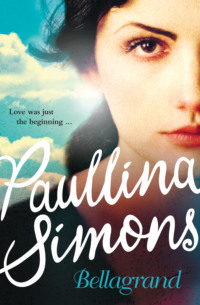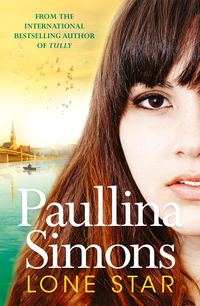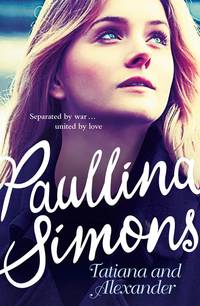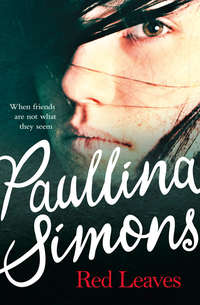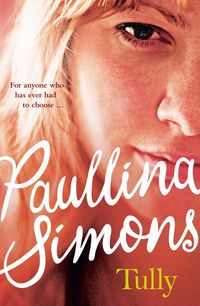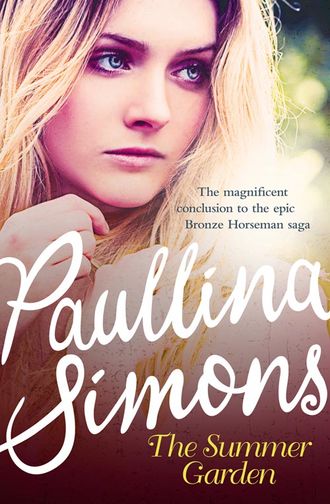
Полная версия
The Summer Garden
He had asked this of her—in another life. “Oh, come now,” he said slowly. “You don’t—you aren’t—no, come on … Oh no!” Alexander let out an incredulous laugh. “I just got it! Just. Oh, I’m good. I’m sharp. I don’t know how we ever won the war. Tania, come on! Recall when I said it.”
“I’m recalling it as if you’re saying it to me now,” she said with crossed arms.
“Well, then surely you know I meant it metaphorically. As in, would you like to live somewhere that’s warm. I didn’t actually mean here!”
“No?” Her no was so quiet.
“Of course no! Is that why you bought the land?”
When Tatiana didn’t reply, Alexander became speechless. There were so many baffling things he didn’t understand about her, he simply didn’t know where to look for answers. “We’re in the middle of an iced over, blockaded, heatless Leningrad,” he said. “The Germans are denying you even the unleavened cardboard and glue that you’re eating instead of bread. I briefly mention a vague warm place I barely remember that I had once driven through with my parents. Damn, I should’ve said Miami. Would you have then bought land there?”
“Yes.”
“You’re not serious. Anthony, come here, stop chasing rattlesnakes. Do you like it here?”
“Dad, this is the funnest place in the whole world.”
“What about this cholla? Is that fun?”
“So fun! Ask Mommy. She says it has evil spirits. She calls it the cactus from hell. Tell him, Mama—it’s worse than war.” He ran off with joy.
“Yes,” said Tatiana, “stay away from the cholla, Alexander.”
He furrowed his brow. “I think the heat has done something to both of you. Tania, inland, we’re so far inland, the air doesn’t even carry water on the wind!”
“I know.” She took a hot gulp of air.
They disengaged, spread out, thinking their separate thoughts. Anthony was picking dried-out fruit off the prickly pear cactus. Tatiana was pulling the dried-out red flowers off the cattail-like ocotillo. And Alexander was smoking and looking at the land and the mountain and the valley below. The sun set peacefully, and as the light of the sun changed once more, the rock hills transformed into a blaze. They put down a blanket, sat shoulder to shoulder, knee to knee and watched the sunset while Anthony played.
Alexander thought Tatiana had been thinking of how to convince him to sell the land or not to sell the land, but what she said to him was more perplexing. She said: “Shura, tell me, in Lazarevo, when you were going to go back to the front … we used to look at the Ural Mountains like this. Tell me, why didn’t you just stay?”
Alexander was taken aback. “What do you mean, stay?”
“You know.” She paused. “Why didn’t you just … not go back?”
“Not go back to my command post? You mean—desert?”
She nodded. “Why didn’t we just run—into the Urals? You could have built us an izba, we could’ve settled there, in the forest, found some precious stones, bartered them, grown things to eat. They would’ve never found us.”
Alexander shook his head, his hands opening in deep question. “Tatiana, what in the name of God,” he said, “are you thinking? What in the world is going through your mind, and more important, why?”
“It’s not a rhetorical question. I would like an answer.”
“An answer to what? Why didn’t I desert the Red Army? For one, my commander, Colonel Stepanov, that nice man—remember him, who let me have twenty-nine Lazarevo days with you—would’ve gone to the firing squad for having a deserter in his brigade. So would my major, and all the lieutenants and sergeants I served with. And you and I would’ve been on the run for the rest of our short, doomed lives. On the run! And they would’ve found us, like they find everybody. Remember I told you about Germanovsky? They found him in Belgium after the war, and he’d never even set foot in the Soviet Union. He was born in France. His father was a diplomat. Germanovsky was given ten years hard labor for not returning when he turned eighteen—fourteen years earlier! That would have been us. Except they would have found us in five minutes, the first time we tried to barter some of that precious Ural malachite to match your eyes. It would’ve been over like lightning, and the five extra minutes we would have had would’ve been spent with one eye looking over our shoulder. In other words, prison. That’s what you wanted—?”
Without letting him finish, she jumped up and walked away. What was she thinking? But at the same time, the sun was on fire, and Alexander had spent too long in dark places below ground, and so he didn’t go after her but sat and finished his cigarette, watching the desert sunset up from a hill.
When Tatiana came back to the blanket she said, “It was just a silly question.” She knocked into his shoulder. “I was musing, not serious.”
“Oh, that’s good. As opposed to what?”
“Sometimes I think crazy thoughts, that’s all.”
“The crazy part, absolutely. What thoughts?” Alexander paused. “How it all might’ve been different?”
“Something like that,” she said staring into space. Then she took his hand. “Sunset’s nice, isn’t it?”
“Sunset’s nice,” said Alexander.
She leaned against him. “Shura, this all might look burned and brown now, but in the spring,” she said in a breathy voice, “the Sonoran Desert is reborn! With pale blue delphinium, white thistle, flame poppy, red ocotillo, blue and yellow palo verdes, and scarlet bugle. We can even plant some lilac sand verbena. You know how much you like lilac,” she cooed. “And prickly pears and pincushion cacti grow here …”
Alexander squeezed her little hand and raised his eyebrows. This was a much better conversation. “Babe,” he said, lowering his voice, and glancing around to make sure Ant wasn’t nearby, “in my lewd soldier’s world pincushion means only one thing, and you can be sure it’s not cacti.”
Tatiana tutted in mock shock, pulled to get away, but Alexander grabbed her, pulled her down onto her back on the blanket, bent over her, and said huskily, “Tell me, is there pussy willow in the desert, too?” watching her flush red, and forgetting all about flame poppy and scarlet bugle.
He let her shove him, scramble up, and run from him. He chased her, he chased Anthony.
He is making a silent movie with her, and she is moving in broken frames, animated and choppy, to the sound of the jerking crank. Her arms do a little flapper dance from side to side; her teeth are gleaming, she is tousle-haired and sunny, she runs after Anthony, her taut hips curve and swivel, she runs back to Alexander, her bouncy breasts bob and sway; she stands in front of him, holding her hands out to him, come, come, but he is holding the shaking camera, he can’t come. Her exquisite mouth puckers, her mouth in black and white—it’s a bow, a blow, a kiss, a gift that keeps on giving—and suddenly, a broken reel. Shura! Shura! Can you hear me? she squeals, and he puts the camera down and chases her, and somewhere in the Siberian juniper he catches her. She bats her eyes that squint upward catlike when she laughs, she parts her mouth and pleads falsely and merrily for release. Someday perhaps they will look back at the movies of this time, movies that will have captured the illusion, the fleeting joy that is their youth. Just as Soviet cameras once captured the snapshots of another her, another him, on the stone steps of wedding churches or near their long lost brothers.
Covered in sweat and sand, Alexander and the boy took off their shirts and fell down on the nylon tent covering while Tatiana dipped a towel into a bucket of water and cooled their chests and faces. Once he had only a soaked towel on his face as he dreamed of her. Now he had a soaked towel and her. He reached out, like a bear—and pawed her. She is here.
“I want the Biscayne Bay now …” croaked Alexander. “The Gulf of Mexico now.”
He got darkness now, and a sleeping son. The stars were all out, even Jupiter. She came out to him after putting Anthony to bed inside the camper, and he was sitting in a plastic folding chair, smoking. Another chair stood by his side.
She started to cry.
“Oh, no,” he said, covering his face.
Patting his shoulder, her voice low, she said with a sniffle, “Thank you.” And then climbed into his lap and held his head to her.
“You understand nothing,” he said, rubbing his cropped hair into her neck. “The lap was always so much better.”
Alexander had pitched a tent for them and built a small careful fire surrounded by stones right in front of it. “You know how I lit the kindling?” he said. “I held it to a rock for five seconds.”
“All righty, now,” she said. “Enough of that.”
They sat facing west, wrapped around each other, looking out onto the dark valley.
“When you weren’t with me,” said Tatiana, “and when I thought you were never going to be with me again, I bought this land on top of the hill. For you. Because of the things you taught me. Just like you always taught me. To be on high ground.”
“That rule is only for floods and war, Tatia. What are the chances of either here?” He stared into the blackness.
“Husband …” she whispered, “you see nothing down there now, but can you imagine in a few years’ time, all the twinkling lights from streets, from houses, from shops, from other souls in the valley? Like New York is lit up, this valley will be lit up, and we could sit here like this and watch it below us.”
“You said a second ago we were selling the land tomorrow!”
“Yes.” Tatiana was warm, open, until a part of her shut off, became tense like her fingers. Her wistful desire to see the desert bloom in the sometime spring was strong, but the trouble in her clenched hands was strong also. “Just a dream, Shura, you know? Just a silly dream.” She sighed. “Of course we’ll sell it.”
“No, we’re not selling it,” Alexander said, turning her to face him. “And I don’t want to talk about it anymore.”
She pointed to the tent. “We’re sleeping there?” Her palms went around his neck. “I can’t. My bravery is fake, as you know. I’m scared of scorpions.”
“Nah, don’t worry,” said Alexander, his hands tight around her ribs, his lips pressing into her pulsing throat, his eyes closing. “Scorpions don’t like loud noises.”
“Well, that’s good,” Tatiana murmured, tilting her head upward. “Because they won’t be hearing any.”
She was so wrong about that … christening their ninety-seven acres, and Pinnacle Peak and Paradise Valley, and the moon and the stars and Jupiter in the sky with their tumultuous coupling and her ecstatic moans.
The next morning as they raised camp and packed up to go north to the Grand Canyon, Alexander looked at Tatiana, she looked at him, they turned around and stared at Anthony.
“Did the boy not wake last night?”
“The boy did not wake last night.”
The boy was sitting at the table doing a U.S. puzzle. “What?” he said. “You wanted the boy to wake last night?”
Alexander turned to the road. “Well, isn’t that interesting,” he mused, reaching for his pack of Marlboros. “Something calm to make us sane.”
Missing Time
At Desert View, they stood over the ageless rim of the Grand Canyon and stared west into the blue haze horizon and far down to the snake of the Red River. They drove a few miles west and stopped at Lipan Point and then at Grandview Point. At Moran Point they sat and gawked and walked in silence, even the normally chatty Anthony. They walked along the rim on a wooded path under the Ponderosa pines to Yavapai Point, where they found a secluded spot to sit and watch the sunset. Anthony came too close to the edge, and both Alexander and Tatiana jumped and yelled, and he burst into tears. Alexander held him in a vise, finally relenting and releasing him only after literally drawing a line in the sand and telling the boy not to step an inch over it if he didn’t want a military punishment. Anthony spent the sunset building up that line into a barricade with pebbles and twigs.
The sun in the indigo sky set over the Canyon, painting crimson blue the greening forests of cottonwoods and juniper and spruce. Alexander stopped blinking, for while the sun was setting, the hues of the Canyon had changed, and he could not catch his breath in the silence while the cinnabar heat fell like rust iron mist over two billion years of ancient temples of layered clays and fossiled silt, and from its cream Coconino to its black Vishnu schist, all the ridges and Redwalls and cliffs and ravines, and the Bright Angel shales and the sandstones and limestones from Tonto to Tapeat, all the pink and wine, and lilac and lime, and the Great Unconformity: the billion years of missing time—all was steeped in vermilion.
“God is putting on some light show,” he finally said, taking a breath.
“He’s trying to impress you with Arizona, Shura,” murmured Tatiana.
“Why do the rocks look like that?” asked Anthony. His barricade was nearly a foot high.
“Water, wind, time erosion,” replied Alexander. “The Colorado River below started as a trickle and became a deluge, carving this canyon over millions of years. The river, Anthony, despite your mother’s aversion to it, is a catalyst for all things.”
“It is precisely because of this catalysis that the mother is averse to it,” said the mother as she sat under his arm.
Alexander finally stood up and gave her his hand. “At the end of His geological week, God surveyed His rocks in the most Grand of all the Canyons in all the Earth He had created and all the life that dwelt upon them and behold, it was very good.”
Tatiana nodded in her approval of Alexander. “Who said that? You know what the Navajos say, who live and walk and die in these parts?” She paused trying to remember. “With beauty in front of me, I walk,” she said, stretching out her arms. “With beauty behind me, I walk. With beauty below me, I walk.” Not a sound came from the Canyon below. “With beauty above me, I walk.” She spoke quietly. “It is finished in beauty.” She raised her head. “It is finished in beauty.”
“Hmm,” said Alexander, taking one long inhale of his cigarette, eternally in his mouth. “Substitute what you most believe in for the word beauty,” he said, “and then you’ve really got something.”
In the eerily soundless night at the Yavapai campsite, Anthony was restlessly asleep in one of the two tents, while they kept listening to his stirrings and whimperings, waiting for him to quieten down, sitting huddled under one blanket in front of the fire, a mile from the black maw of the Canyon. They were shivering, their icy demons around the worsted wool.
They didn’t speak. Finally they lay down in front of the fire, face to face. Alexander was holding his breath and then breathing out in one hard lump.
He didn’t say anything at first. He didn’t want to talk to her about things that could not be changed. And yet, pain he could not forget kept creeping in and prickling his heart in a thousand different ways. He imagined other men touching her when he was dead. Other men near what he was near, and her looking up at them, taking their hands to lead them into rooms where she was widowed. Alexander didn’t want the truth if it wasn’t what he wanted to hear; he didn’t know how he would bear the unwelcome truth, and he hadn’t asked her in all the time he’d been back, but here they were, lying together at the Grand Canyon, which seemed like a rightful place for mystical confessions.
He took a breath. “Did you love to go dancing?” he asked.
“What?”
So she wasn’t answering. He fell silent. “When I was in Colditz, that impenetrable fortress, whittling away my life, I wanted to know this.”
“Looks like you’re still there, Shura.”
“No,” he said. “I’m in New York, a fly on the wall, trying to see you without me.”
“But I’m here,” she whispered.
“Yes, but what were you like when you were there? Were you gay?” Alexander’s voice was so sad. “I know you didn’t forget us, but did you want to, so you could be happy again like you once were, dance without pain?” He swallowed. “So you could … love again? Is that what you were thinking sitting on the planks at Mercy Hospital? Wanting to be happy again, wishing you were back there, in New York, reciting Emily Brontë to yourself? Sweet love of youth, forgive if I forget thee …”
He was leading her to temptation of clarity. But he could see she didn’t want clarity. She wanted a jumble that she could deny.
“Okay, Shura, if we’re talking like this, having these things out, then tell me what you meant when you said I was tainted with the Gulag. Tell me what happened to you.”
“No. I—forget it. I was—”
“Tell me what happened to you when you went missing for four days in Deer Isle.”
“It’s getting longer and longer. It was barely three days. First tell me what you were thinking at Mercy Hospital.”
“Okay, fine, let’s not talk about it.”
He pressed his demanding fingers into her back. He put his hands under her cardigan, under her blouse, into her bare shoulders.
He turned her on her back and kneeled astride her, the fire, the maw behind them. No comfort, no peace, he guessed with a sigh, even in the temples of the Grand Canyon.
Anthony’s whimperings turned into full scale miseries. “Mama, Mama!” Tatiana had to rush to him. He calmed down, but she stayed in his tent. Eventually, Alexander crawled in and fit in sideways behind her in the little tent on the hard ground.
“It’s just a stage, Shura,” said Tatiana, as if trying to assuage him. “It too will pass.” She paused. “Like everything.”
Alexander’s impatience and frustration also burned his throat. “You wouldn’t say that if you knew what he dreams about.”
Tatiana stiffened in his arms.
“Ah!” Alexander raised his head to stare at her in the dark. He could barely see the contours of her face, as the fire diffused muted light through the slightly raised flaps. “You know!”
Tatiana sounded pained when she said yes. Her head remained down. Her eyes were closed.
“All this time you knew?”
She shrugged carefully. “I didn’t want to upset you.”
After a stretch of conflicted silence, Alexander spoke. “I know you think, Tatiana,” he said, “that everything will turn out well, but you’ll see—it won’t. He’s never going to get over the fact that you left him.”
“Don’t say that! He will. He’s just a small boy.”
Alexander nodded, but not in agreement. “Mark my words,” he said. “He won’t.”
“So what are you saying?” she said, upset. “That I shouldn’t have gone? I found you, didn’t I? This conversation is just ridiculous!”
“Yes,” he whispered. “But tell me, if you hadn’t found me, what would you have done? Returned to New York and married Edward Ludlow?” He was indifferent to her stiffness and her tutting. “Anthony for one, rightly or wrongly, thinks that you would have never come back. That you’d still be looking for me in the taiga woods.”
“No, he doesn’t!” Turning sharply to him, Tatiana repeated, “No. He doesn’t.”
“Did you listen to his dream? His mother had a choice. When she left him, she knew there was a very good chance she was leaving him for good. She knew it—and still, she left him. That is his dream. That is what he knows.”
“Alexander! Are you being deliberately cruel? Stop!”
“I’m not being cruel. I just want you to stop pretending that’s not what he’s going through. That it’s just a small thing. You are the big believer in consequences, as you keep telling me. So when I ask you if he’s going to get better, don’t pretend to me you don’t know what I’m talking about.”
“So why ask me? Obviously you have all the answers.”
“Stop it with the snide.” Alexander took a breath. “Do you know what’s interesting?”
“No. Shh.”
“I have nightmares that I’m in Kolyma,” Alexander said dully. “I’m sharing a cot, a small dirty cot with Ouspensky. We’re still shackled together, huddling under a blanket. It’s viciously cold. Pasha is long gone.” Alexander swallowed past the stones in his throat. “I open my eyes and realize that all this, Deer Isle, Coconut Grove, America, had been the actual dream, just like I feared. This is just another trick the mind plays in the souls of the insane. I jump out of bed and run out of the barracks, dragging Ouspensky’s rotting corpse behind me into the frozen tundra, and Karolich runs after me, chasing me with his weapon. After he catches me—and he always catches me—he knocks me in the throat with the butt of his rifle. ‘Get back to the barracks, Belov,’ he says. ‘It’s another twenty-five years for you. Chained to a dead man.’ When I get out of bed in the night, I can’t breathe, like I’ve just been jabbed in the throat.”
“Alexander,” Tatiana said inaudibly, pushing him away with shaking hands. “I begged you, begged you! I don’t want to hear this!”
“Anthony dreams of you gone. I dream of you gone. It’s so visceral, every blood vessel in my body feels it. How can I help him when I can’t even help myself?”
She groaned in remonstration.
He lay quietly behind her, cut off mid-sentence, mid-pain. He couldn’t take it anymore. He couldn’t get out of the tent fast enough. He said nothing, just left.
Tatiana lay inside by Anthony. She was cold. When the boy was finally asleep, she crawled out of the tent. Alexander was sitting wrapped in a blanket by the fading fire.
“Why do you always do that?” he said coldly, not turning around. “On the one hand you draw me into ridiculous conversations and are upset I won’t speak to you, but when I speak to you about things that actually gnaw at me, you shut me down like a trap door.”
Tatiana was taken aback. She didn’t do that, did she?
“Oh, yes,” he said. “Yes, you do do that.”
“I didn’t mean to upset you.”
“Then why do you?”
“I’m sorry,” she said. “I can’t help that I can’t talk about Ant’s unspeakable dreams. Or yours.” She was terror-stricken enough.
“Well, run along then, back in the tent.” He continued to sit and smoke.
She pulled on him. He jerked away.
“I said I was sorry,” Tatiana murmured. “Please come back inside. I’m very cold, and you know I can’t go to sleep without you. Come on.” She lowered her voice as she bent to him. “Into our tent.”
In the tent he didn’t undress, remaining in his long johns as he climbed inside the sleeping bag. She watched him for a few moments, as she tried to figure out what he wanted from her, what she should do, what she could do. What did he need?
Tatiana undressed. Bare and unprotected, fragile and susceptible, she climbed into the sleeping bag, squeezing in under his hostile arm. She wanted him to know she wasn’t carrying any weapons.
“Shura, I’m sorry,” she whispered. “I know all about my boy. I know all about the consequences of my leaving him. But there is nothing I can do now. I just have to try to make him better. And he does have both his parents for my trouble and his trouble. I’m hoping in the end, somewhere down the line, that will mean something to him, having his father. That the balance of things will somehow be restored by the good that’s come from my doing the unforgivable.”
Alexander didn’t say anything. He wasn’t touching her either.
Putting his hand under his crew, she rubbed his stomach. “I’m so cold, Shura,” she whispered. “Look, you’ve got a cold nude girl in your tent.”
“Cold is right,” he said.
Pressing herself against him, Tatiana opened her mouth and he cut her off half-murmur. “Stop this whole speaking thing. Just let me go to sleep.”
She sucked in her breath, held her other words back, and tugged at him, opening her arms to him, but he remained unapproachable. “Forget about comfort, forget about peace,” he said, “but even what kind of relief do you think I’m going to get from you when you’re all clenched up and upset like this? The milk of kindness is not exactly flowing from you tonight.”



